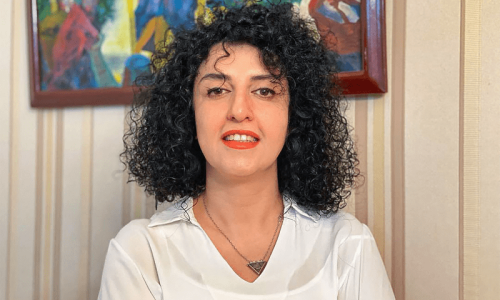GENEVA: The UN Human Rights Council on Thursday launched an inquiry into alleged war crimes in Sri Lanka, despite Colombo's fierce efforts to block an investigation.
In a 23-12 vote, the council backed a Western-sponsored resolution which said it was time for a “comprehensive investigation into alleged serious violations and abuses of human rights and related crimes by both parties in Sri Lanka”.
Sri Lanka's ambassador to the UN in Geneva, Ravinatha Aryasinha, slammed the resolution as a “serious breach of international law”, telling the council it constituted “an infringement of state sovereignty and pre-judgement of the outcome of domestic processes.”
Sri Lankan President Mahinda Rajapakse also condemned the vote.
“We reject this,” Rajapakse told AFP in Sri Lanka. “This resolution only hurts our reconciliation efforts. It does not help.
“But I am not discouraged. We will continue with the reconciliation process I have started,” he said.
Rajapakse, who has tightened his grip on power after crushing the separatist Tamil Tiger rebels in 2009, has argued that he is being unfairly targeted by Western nations.
But they question the credibility of his efforts to come clean on the past and to stem what they say are ongoing rights violations.
“The human rights situation in Sri Lanka continues to deteriorate, despite some areas of limited progress,” US envoy Paula Schriefer told the council as she presented the resolution.
She highlighted concern over sexual violence, enforced disappearances, extrajudicial killings, torture, violations of the rights to freedom of expression, association and peaceful assembly, and threats to judicial independence and the rule of law.
She also cited intimidation of and reprisals against human rights campaigners, lawyers and journalists, and attacks on minority groups, including Muslims, Christians, and Hindus.
Sri Lankan ambassador Aryasinha countered that such allegations were biased, and being driven by pro-Tiger activists around the world.
“Such biases and extreme ideologies ignore the ground realities, the legitimate aspirations of the Sri Lankan people, and trivialise the price paid by all Sri Lankans to defeat a 30-year brutal terrorist conflict and consolidate peace,” he said.
The resolution noted that UN rights chief Navi Pillay had herself demanded an “international inquiry mechanism in the absence of a credible national process with tangible results”.
Pillay's office will now be tasked with investigating events between 2002 and 2009, a time-frame criticised by Sri Lanka as being too short, but which its critics note is the period covered by the country's own truth and reconciliation process.
UN monitors say that thousands of ethnic Tamils died in the army's final offensive that ended the Tigers' fight for an independent state.
Pillay had told the council on Wednesday that it was crucial to recall the “magnitude and gravity” of the violations allegedly committed by both the government and the rebels, who were known for their trademark suicide bombings.
The 1972-2009 conflict claimed 100,000 lives, according to a UN estimate.
Sri Lanka has locked horns with Pillay in the past.
When she visited the country last year, she hit out at Sri Lankan officials who spotlighted the fact that while she is a South African, she hails from that country's Indian Tamil community.













































